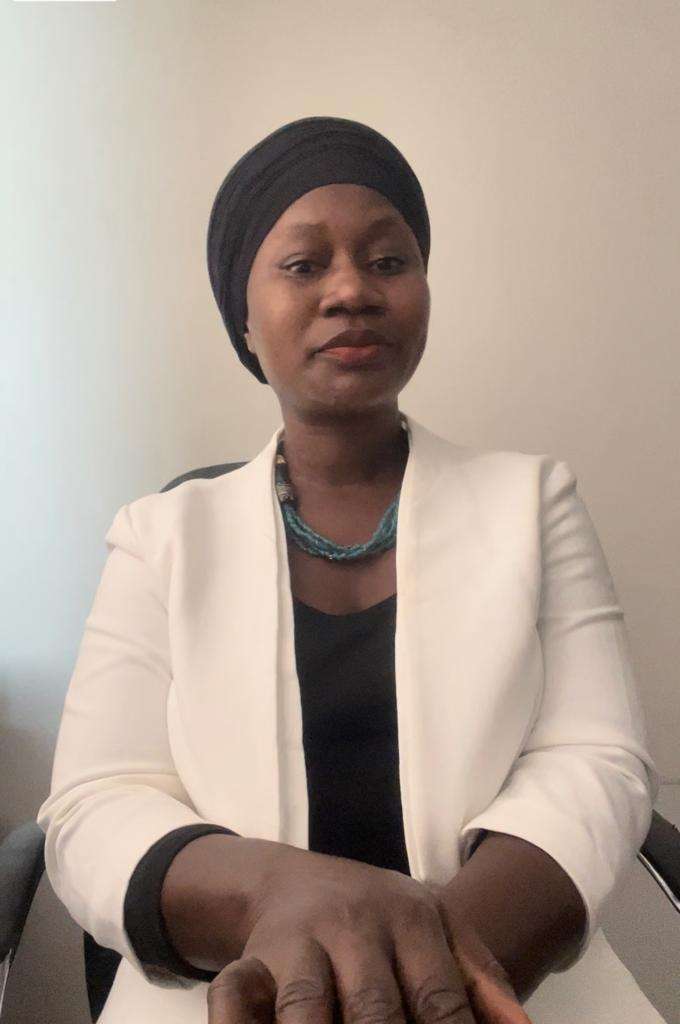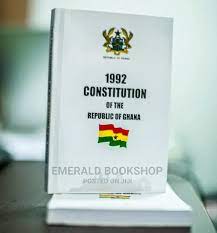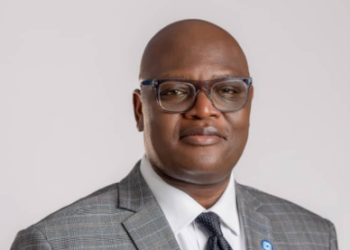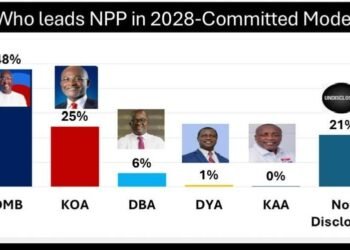According to Dr. Maliha Abubakar, a Political Science lecturer at the University of Education, Winneba (UEW), conflict of interest issues typically arise in the public sector, particularly in government agencies, although she acknowledged that this does not preclude the existence of similar issues in the private sector.
Dr. Abubakar highlighted that conflict of interest in the public sector is a critical issue that demands serious attention from the public, as it has far-reaching consequences for the entire citizenry and undermines the public interest, which is the government’s fundamental responsibility to uphold and protect.
She explained that conflict of interest typically arises when an individual’s personal interests, such as friendships, family ties, financial gain, or social connections, influence their decision-making and compromise their impartiality and objectivity.
Speaking to the Vaultz News, Dr. Abubakar further advised that the most effective way to prevent conflict of interest is to deliberately avoid situations that could potentially lead to conflicts, thereby minimizing the risk of compromising one’s judgment and integrity.
“So if you can avoid this… let’s say, for example, I am the head of, the Audit Service and there is an opportunity to recruit people into the audit service. And my son is qualified and wants to apply to the audit service. The best I can do is to tell my son not to apply.
Because even if my son applies and he is the most qualified and I pick him, it will be very difficult for me to convince outsiders that my son was recruited solely on merit. So to avoid issues of conflict of interest, please distance yourself from it”.
Dr. Maliha Abubakar
She cautioned against allowing family members to get too close to one’s professional sphere as a public official, stressing that maintaining a clear boundary is essential to preserving one’s integrity and upholding ethical standards.
Ethical Leadership Key To Combating Conflict Of Interest
Furthermore, Dr. Maliha Abubakar commented on the allegations of state capture by ruling government officials, emphatically stating that politicians acquiring state assets is absolutely unacceptable, a clear no-go zone, and a definite red line that must not be crossed.
She observed that it seems those in government have either never understood or have conveniently forgotten the concept of conflict of interest, effectively erasing it from their vocabulary and ignoring its significance in ethical decision-making.
“And so for them, conflict of interest does not exist. That’s how people behave. Somebody makes the argument that the gentleman has the money and he wants to buy it. It’s not as if he’s taking it for free”.
“Why are we making noise? Why would we make noise? You see, the way conflict of interest is when you look at it at face value, it looks harmless. On the face value, it is difficult to place it or to point it out as corruption”.
Dr. Maliha Abubakar
However, she emphasized that upon closer examination, conflict of interest is revealed to be a key enabler of corruption, effectively greasing its wheels, perpetuating its existence, and amplifying its harmful effects.

Dr. Abubakar lamented that the country lacks explicit laws to address conflict of interest, allowing individuals to mismanage state assets, deliberately undermining their value, and then deceitfully claiming they are no longer viable, paving the way for their privatization.
“And when they are selling it, they’ll be the first people to come and buy. Now tell me, why would you want to buy something that is not viable?” – Dr. Maliha Abubakar
She warned that conflict of interest poses a significant threat to the state, emphasizing that Ghana urgently needs to establish laws to address this issue, as currently, there is no legislation in place to prevent or regulate conflict of interest in the country.
She noted that the absence of laws has created a culture where individuals freely engage in conflict of interest, acting with impunity and no fear of repercussions.
Dr. Abubakar emphasized that while conflict of interest may not be explicitly illegal, it remains a serious ethical concern, highlighting the need for moral accountability and ethical standards in governance, even in the absence of legal frameworks.
“And when it comes to matters of ethics, what one person may find to be ethical, another person may find to be unethical”. – Dr. Maliha Abubakar
She emphasized that unethical issues are inherently problematic, regardless of one’s perspective, and warned that when ethical violations undermine democratic principles, the public should be alarmed and take notice, as it erodes the very fabric of a healthy democracy.
Passage Of Conflict Of Interest Law Crucial For Democracy
Moreover, Dr. Maliha Abubakar urged civil society organizations to throw their weight behind Hon. Samuel Okudzeto Ablakwa’s private member’s bill on conflict of interest, just as they did with the Right to Information Act, emphasizing the need for collective support to push for this crucial legislation.
“They should put all their resources and efforts together to push to ensure that this particular bill, sees the light of day. We need to have this law. It’s nonnegotiable. It’s very important to the protection and growth of our democracy. We need this law. And I think civil society organizations should work in tandem with, the honorable Member of Parliament to ensure that the law comes to pass”.
Dr. Maliha Abubakar
Dr. Abubakar commented on the ongoing SSNIT Hotel saga, observing that individuals are prioritizing party loyalty over principle, allowing personal biases to cloud their judgment and hinder objective scrutiny of the issue. “People are simply doing politics with this”, she added.
“All those who find nothing wrong with the sales of the assets to the Agric Minister, [are] mostly NPP. So ask them, if NDC comes to power tomorrow and a minister under NDC is trying to purchase state property, will it maintain the same stance? If they would maintain the same stance, then we say, well, ayekoo. But I bet you, they are not going to maintain the same stance, and that is what has often characterized politicians in Africa and Ghana. Duplicity. Duplicity”.
Dr. Maliha Abubakar
She pointed out that politicians often engage in flip-flopping, conveniently changing their rhetoric to suit their interests, speaking one way when in opposition, and reversing their stance when in power, revealing a lack of consistency and integrity.
Speaking to the Vaultz News, Dr. Abubakar emphasized that national interest should supersede partisan divisions, urging citizens to prioritize the country’s well-being and unity over political affiliations, fostering a collective approach to address the issue at hand.
She emphasized that it is detrimental to Ghana’s well-being to allow the country to be exploited in such a way that public officials are enabled to acquire public assets for personal gain, highlighting the need to protect the nation’s interests and prevent such conflicts of interest.
“Is the Agric Minister saying there are no other avenues he can go and invest in?” – Dr. Maliha Abubakar
She pointed out that selling state assets to anyone else would not be an issue, but the problem lies in public officials profiting from these deals, emphasizing that those in government must adhere to the law, uphold their duty to protect the state’s interests, and avoid conflicts of interest.
Urgent Need For Political Will To Drive Constitutional Reform
Furthermore, Dr. Maliha Abubakar noted that Article 78(1) facilitates conflicts of interest and emphasized that a constitutional review is urgently needed to address this loophole and ensure Ghana’s governance framework aligns with the nation’s best interests.

She pointed out that the review process has been completed and the report submitted, emphasizing that the missing link is a government with the political will to effect meaningful changes and amend certain provisions of the 1992 Constitution to drive reform.
“There are so many things in the constitution that need to be worked on, not just the Article 71 officeholders. I am very passionate about, the election of, local government officials and district chief executives. Local government is supposed to help us develop, and you wonder why our country has not developed over 30 years since the introduction of local government, authorities in Ghana. Why? It is because it has been reduced to partisan politics”.
Dr. Maliha Abubakar
Dr. Abubakar criticized the appointment of individuals to Local Government positions, prioritizing party loyalty over competence, resulting in officials who lack vision and innovative thinking, hindering effective governance at the local level.
“In fact, they [local government officials] are bereft of ideas to actually propel their various districts to develop”. – Dr. Maliha Abubakar
She emphasized that if competent individuals with vision and leadership skills were elected to office, Ghana’s development would be far more advanced, but unfortunately, the country’s progress has been hindered by the prioritization of political interests over effective governance, reducing development to mere political gamesmanship.
Dr. Abubakar stressed that the provisions governing Article 71 officeholders need to be revisited, as there are numerous issues with the current arrangement that require urgent attention and reform to ensure accountability and good governance.
She pointed out that ironically, Article 71 officeholders, who are supposed to serve the public, have become masters who are served by the taxpayers, exploiting the public purse for their personal benefits, rather than working for the people’s welfare.
“I believe that Article 71 officeholders should use their hard-earned money to buy their vehicles as we teachers do. And they said, yeah, they should. MPs buy cars but at what rate? It’s a loan and how much of the loan do they pay back?”
Dr. Maliha Abubakar
Dr. Maliha Abubakar emphasized that these issues need to be addressed, highlighting that public service should be about serving the people, not personal enrichment, and that Article 71 officeholders must prioritize serving the nation, not exploiting their positions for financial gain.
READ ALSO: Labour’s Immigration and Border Policy Ahead of UK Election























